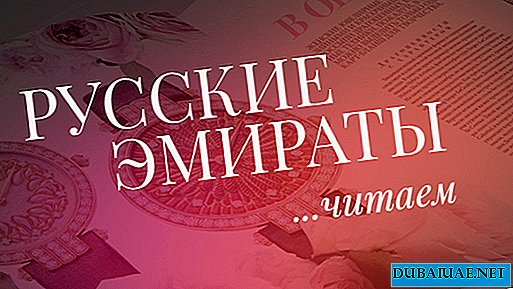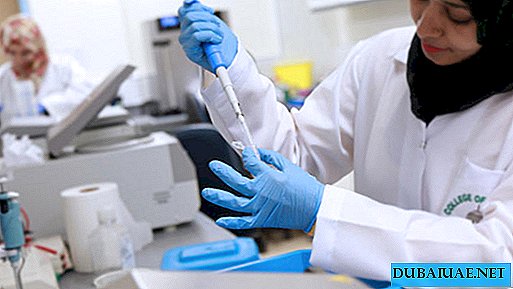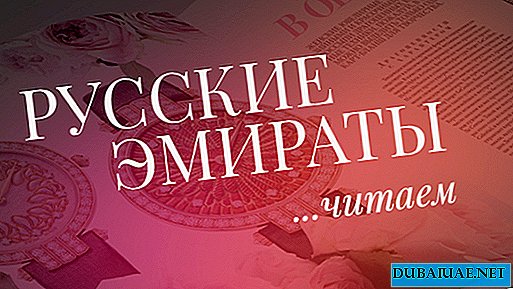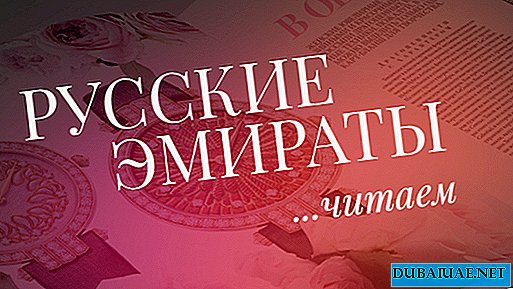 UAE GLORY THOUKS FOR THE WHOLE WORLD. THE IMPRESSION IS CREATED THAT THE LITTLE EMIRATES TRY TO Cram INTO ALL THE MOST NEW, BIG, GREATEST, BEAUTIFUL, HIGH, PROGRESSIVE AND AMAZING. BEYOND ALL THIS VOICE MUSIC, ALMOST UNSECRUPTED EXTENSIVE CHARITABLE ACTIVITIES, AS STATES, AND NUMEROUS PUBLIC FUNDS AND INDIVIDUALS. CONSERVED AND CULTIVATED TRADITIONS OF CREATING GOOD IN A SMALL SEASIDE COUNTRY WERE UNIVERSAL IMITION AND RESPECT, WHAT ANASTASIA ZORINA CONSIDERED.
UAE GLORY THOUKS FOR THE WHOLE WORLD. THE IMPRESSION IS CREATED THAT THE LITTLE EMIRATES TRY TO Cram INTO ALL THE MOST NEW, BIG, GREATEST, BEAUTIFUL, HIGH, PROGRESSIVE AND AMAZING. BEYOND ALL THIS VOICE MUSIC, ALMOST UNSECRUPTED EXTENSIVE CHARITABLE ACTIVITIES, AS STATES, AND NUMEROUS PUBLIC FUNDS AND INDIVIDUALS. CONSERVED AND CULTIVATED TRADITIONS OF CREATING GOOD IN A SMALL SEASIDE COUNTRY WERE UNIVERSAL IMITION AND RESPECT, WHAT ANASTASIA ZORINA CONSIDERED.
Modern books on speedy enrichment unanimously advise - share! According to the karmic laws professed by their authors, 10% of the acquired must be given. And then, books say, you will be happy and prosperous. Otherwise nothing: karmic laws are the laws of God. Apparently because the small UAE federation is flourishing, local authorities and businesses not only know how to make money, but also know how to share. And embracing with their merciful help not only the Emirates, but also those who need it, regardless of place of registration. At the same time they do it without too much hype, as befits according to the precepts of Islam.
The original Russian tradition of helping others is slowly but surely being reborn today in Russia. And we have someone to learn from, especially since the traditions of both peoples have much in common. “A poor beggar is fed to the rich, and a rich beggar is saved by prayer,” the axiom that has existed in Russia for many centuries in a row is strictly observed in the Emirates to this day.
“GIVE BAKER BREAD, EVEN IF HE EATS HALF”
 I have always been fascinated by the deep ritual significance of Muslim greeting, which reflects so well the character of the followers of Islam. “As-salamu alaikum” or “As-salamu alaykum wa rahmatullahi wa barakatuhu” - for many centuries they have been talking to each other at a meeting. And it is not just words. This is a plea, a plea for another person. "Peace be with you, health and prosperity in earthly and eternal life. May the mercy and grace of Allah Almighty descend upon you." In response, another plea sounds: “Va Aleikum As-Salam” or “Va Aleikum As-Salam Va Rahmatullahi Va Barakatuhu” - “And peace be upon you. May the mercy and grace of Almighty Allah descend upon you.” And then comes a series of verbal curtsies, which takes a minute or two. Emirates rarely greet each other otherwise, although there are many equivalents to our "hello!" In Arabic.
I have always been fascinated by the deep ritual significance of Muslim greeting, which reflects so well the character of the followers of Islam. “As-salamu alaikum” or “As-salamu alaykum wa rahmatullahi wa barakatuhu” - for many centuries they have been talking to each other at a meeting. And it is not just words. This is a plea, a plea for another person. "Peace be with you, health and prosperity in earthly and eternal life. May the mercy and grace of Allah Almighty descend upon you." In response, another plea sounds: “Va Aleikum As-Salam” or “Va Aleikum As-Salam Va Rahmatullahi Va Barakatuhu” - “And peace be upon you. May the mercy and grace of Almighty Allah descend upon you.” And then comes a series of verbal curtsies, which takes a minute or two. Emirates rarely greet each other otherwise, although there are many equivalents to our "hello!" In Arabic.
The origins of Arab love for one's neighbor lie in Islam. The obligation to live, doing good, is prescribed to Muslims from above: it passes through many ayahs (sayings) of the Holy Quran as a red thread. Therefore, Shariah also establishes it (from Arabic: “proper way”, “mode of action”) - a single system of laws, Islamic prescriptions governing all aspects of the life of a Muslim and a community, proclaimed as an “eternal and unchanging” divine institution.
The cornerstone of Muslim charity is the mandatory payment of zakat, a tax paid by capable Muslims in favor of those in need. Translated from Arabic, the word "zakat" means "purification", "grace", "growth", "increase", "purity" and "rightness." The payment of zakat is the third pillar of Islam and is the true test of faith. The Prophet Muhammad said: “Purity is half the faith, the words“ praise be to Allah! ”Fill the scales, the words“ holy Allah and praise be to Him! ”Fill what is between heaven and earth, prayer (prayer) is light, alms - proof "patience is radiance, and the Qur'an is an argument for or against you. Everyone starts his own day and is a seller of his soul, either freeing it or leading to its destruction" (Muslim).
The payment of zakat is mandatory for every competent free Muslim, provided that he owns a certain minimum of property. It is prescribed to give zakat once a year, delaying the payment of the next zakat is considered unacceptable. It is very important to do this from the heart, and not by force of necessity.
Determining the amount of zakat is a very troublesome business, requiring not only many arithmetic calculations, but also complete sincerity. Each type of material wealth has its own minimum (nisab). Each type of property from which it is supposed to pay zakat must reach a taxable minimum, regardless of the others. Unfortunately, various sources differ somewhat in the established figures of nisab, so we will present the information available to us as a reference.
Zakat is paid with cash, gold and silver, rental income, securities. Nisab here is 84.8 g of gold and 591 g of silver, regardless of whether its quantity decreased or increased during storage during the year. Zakat is removed from monetary units and securities when they reach a value equal to approximately 84.8 g of gold in the world market. Payments under these items is 2.5% of the withdrawn value of the property. Women's jewelry that she wears are not taxed.
Zakat is also taken from cattle, but only dairy, breeding and pasture, provided that its number reaches a taxable minimum. For example, from a herd of 40 sheep, one sheep stands out. Of the goods brought for sale by pets, 10% of the profit is charged if their total weight reaches 647 kg per year.
 Grains and fruits are subject to taxation. Nisab is established depending on the availability of irrigation facilities and the method of cultivating the land. With naturally irrigated aisles give 1/10 of the crop; in the presence of artificial irrigation - 1/20 of the crop. 2.5% of their total working value, which has reached the limit set for gold, is paid on goods that are objects of trade and income generation. This does not include benefits used for direct trading (offices, transport, and so on). 1/20 of their value is paid from the resources granted by the bowels of land, seas and the sea shelf of goods.
Grains and fruits are subject to taxation. Nisab is established depending on the availability of irrigation facilities and the method of cultivating the land. With naturally irrigated aisles give 1/10 of the crop; in the presence of artificial irrigation - 1/20 of the crop. 2.5% of their total working value, which has reached the limit set for gold, is paid on goods that are objects of trade and income generation. This does not include benefits used for direct trading (offices, transport, and so on). 1/20 of their value is paid from the resources granted by the bowels of land, seas and the sea shelf of goods.
Residential buildings, personal items, clothing, furniture, used weapons, harnesses, precious stones and metals, except for gold and silver, if they are not intended for sale, personal tools, and so on, are not taxed. These are just a few points of calculating the amount of zakat and the material goods taxed by it: a complete list, with all the explanations and nuances, takes up a dozen printed pages.
If all the nuances regarding the amount of zakat are not considered in the Qur'an itself, then the recipients of assistance are indicated unambiguously. These are financially unsecured people who do not have a nisab and, therefore, are exempted from paying zakat; the poor and disadvantaged; zakat collectors and distributors; people close to converting to Islam, but hesitating in a final decision, as well as those who need to strengthen the faith; slaves and captives who need a ransom for their release; debtors who are not able to pay on their own; doing things in the name of Allah and travelers who remained in a foreign country without a livelihood. Zakat cannot be paid in favor of close relatives.
Special funds are engaged in the collection of zakat in the UAE, on which there is a serious responsibility for the correct distribution of accumulated funds: they must distribute them strictly with the instructions of the Koran. Muslims believe that the need to bestow zakat first of all cleanses every believer, once again reminding him of the transience of everything that exists before he can live a clean and full life and go into another world without the sin of acquisitiveness. It helps to smooth out the social injustice created by society. But most importantly, a voluntary donation from the bottom of my heart sows good, love and friendship in people and society. Interestingly, the Prophet Muhammad said: "A test is provided for each community. A test for my community is wealth."
The giving of zakat is not the only charitable rule of Muslims. There are at least three main directions of the creation of good in Islam. These include: the provision of voluntary and gratuitous assistance in the form of various gifts, alms, donations; voluntary payment of debt to those in need of it without interest and eternal donation (waqf) - alienation of property for charitable purposes. But this does not complete the long list of duties of Muslims in relation to their neighbors. According to the testimony of Imam al-Bukhari, the Prophet Muhammad admonished his followers: "To smile in the company of his brother is charity. To force good deeds and to keep from committing evil is charity. To lead a person where he may get lost is charity. "choking things, such as thorns and bones, is charity. Pouring water from your jug into your brother’s jug is charity. Leading the blind is charity."
The Islamic foundations of charity, combined with traditional cordiality, mercy, the desire for mutual assistance and hospitality, so characteristic of the Arabs, became the basis that the creation of good is an integral part of the life of a small country called the UAE.
FROM WORDS TO ACTION
 The United Arab Emirates has a rich history of creation of good, much longer than state history. And perhaps she would not be so rich and long, if not for one single person. UAE First President Sheikh Zayed bin Sultan Al-Nahyan built a house called the United Arab Emirates, raised thousands of sons and daughters of his country and "planted" a tree of good and faith. No wonder his rare Arabic name means "multiplying." Even when he was the ruler of the oasis of Al Ain, his arms stretched to him from everywhere. He shared. When he took off his jacket, hiding a barefoot subject from the wind, gave all the contents of his wallet to new clothes for local punks, built houses for ordinary people, huddled in his brother's house. And it was just like that: Abu Dhabi, entrusted to him, was just getting on his feet. They say that in the clothes of Zayed subjects of the 60s sample there were no pockets: they simply had nothing to wear. Having obtained the first income from oil production, Sheikh Zayed with enviable activity began to implement his plans for the development of the emirate. His charity work covered almost all spheres of life of the then society: he made sure that people lived better, much better than ever. Houses, hospitals, schools, roads were built. Green gardens appeared in the sand. He was not surrounded by prolonged applause, retinues and flashes of cameras. It could not be otherwise, no one considered his actions out of the ordinary. He was simply deeply respected.
The United Arab Emirates has a rich history of creation of good, much longer than state history. And perhaps she would not be so rich and long, if not for one single person. UAE First President Sheikh Zayed bin Sultan Al-Nahyan built a house called the United Arab Emirates, raised thousands of sons and daughters of his country and "planted" a tree of good and faith. No wonder his rare Arabic name means "multiplying." Even when he was the ruler of the oasis of Al Ain, his arms stretched to him from everywhere. He shared. When he took off his jacket, hiding a barefoot subject from the wind, gave all the contents of his wallet to new clothes for local punks, built houses for ordinary people, huddled in his brother's house. And it was just like that: Abu Dhabi, entrusted to him, was just getting on his feet. They say that in the clothes of Zayed subjects of the 60s sample there were no pockets: they simply had nothing to wear. Having obtained the first income from oil production, Sheikh Zayed with enviable activity began to implement his plans for the development of the emirate. His charity work covered almost all spheres of life of the then society: he made sure that people lived better, much better than ever. Houses, hospitals, schools, roads were built. Green gardens appeared in the sand. He was not surrounded by prolonged applause, retinues and flashes of cameras. It could not be otherwise, no one considered his actions out of the ordinary. He was simply deeply respected.
He believed in the unity of the Arabs. He believed in unity. He believed in union. And he was able to combine the fragmented: several strong and powerful rulers of the tribes accepted his idea of federation. He became the first president of the country. President, sincerely believing that the main wealth of the state is its people. And oil was given only so that the Emirates would no longer know the poverty and orphan that reigned in the region for hundreds of years. When he died, everyone cried. Emirates cried, Indians, Palestinians, Filipinos, Pakistanis cried ... I also cried. Because a wave of grief of loss swept through all of a sudden. And together with people, trees cried. Grit And seagulls hovering over the Manhattan of the Persian Gulf, just a quarter of a century ago the former Salt Island. He was a good, kind person. Perhaps one of the last.
He gave his people so much that the world was choked with envy. And if he knew that people are so envious, he would definitely come up with something to protect his people from both an unkind word and a look. Today, Sheikh Zayed’s policy is pursued by his son, His Highness Sheikh Khalifa bin Zayed Al-Nahyan. The head of the Ministry of Social Development is a woman - Miriam Muhammad Khalfan Al-Rumi, marking the conviction of the first emirate president about the inadmissibility of infringement of women's rights. The Emirates has dozens of charitable foundations, public and private. But about this - next time, because their work deserves a separate story.
GIVE YES HANDS NOT DISAPPEAR
 Sheikh Zayed believed that sharing was necessary not only with his people. The first humanitarian organization, the Abu Dhabi Fund for Development (ADFD), to this day providing assistance to people outside the Emirates, was created with its support back in 1971, when a federation of seven emirates did not exist political map of the world. His tasks included helping foreign nationals in two areas: supporting fellow believers and organizing such a state policy that a significant part of the oil and gas income goes to help everyone who needs the most backward regions, regardless of whether they are Arab, African or Asian country will be its destination.
Sheikh Zayed believed that sharing was necessary not only with his people. The first humanitarian organization, the Abu Dhabi Fund for Development (ADFD), to this day providing assistance to people outside the Emirates, was created with its support back in 1971, when a federation of seven emirates did not exist political map of the world. His tasks included helping foreign nationals in two areas: supporting fellow believers and organizing such a state policy that a significant part of the oil and gas income goes to help everyone who needs the most backward regions, regardless of whether they are Arab, African or Asian country will be its destination.
“Helping foreign countries and supporting them in difficult times is an integral part of the UAE’s foreign policy. We believe that there is no point in wealth if it cannot be shared with those who need it, regardless of their nationality or religion. We want to so that our brothers and sisters, and all our friends will share with us what has been given to us from above, "sheikh Zayed postulated. It was Sheikh Zayed who was the first of the Arab rulers to react to the October Arab-Israeli war of 1973. At a speech in New York, he said that his country is again ready to eat only dates, but will not fail, and will sing its own hymns. He did not send an armed peacekeeping army to the teeth in the conflict zone. He sent dozens of mobile hospitals to Syria and Egypt, borrowed £ 100 million from British banks to help his brothers in distress. And finally, he announced the cessation of oil supplies to all countries that supported Israel, despite strong pressure from the outside.
 |  |
 |  |
 | |
Over the 36 years of its existence, the Abu Dhabi Foundation for Development has provided humanitarian assistance for more than US $ 5.4 billion, financing over 240 projects in 55 of the world's poorest countries. In 2006, for example, he allocated US $ 150 million for the construction of roads and hospitals in Yemen.
The Emirate’s Red Crescent Society (RCS), later established today, has become one of the largest international humanitarian aid agencies. Over the past year, he spent US $ 460 million on humanitarian assistance to 95 countries! Little Emirates jumped above their heads, but there will be more. Moreover, there is strong support from the states and ruling families of all emirates.
 In 2006, the Emirates actively helped Lebanon, which suffered in the conflict with Israel. UAE President Sheikh Khalifa bin Zayed, within a few hours after the start of Israeli bombing, allocated US $ 20 million from the country's treasury. Even larger amounts were sent to Lebanon for the first swallow, which were supposed to support the homeless people. By the decision of the President, Vice President and Prime Minister of the UAE, the ruler of Dubai, Sheikh Mohammed bin Rashid Al-Maktoum, as well as the Crown Prince of Abu Dhabi and the Deputy Commander-in-Chief of the UAE Armed Forces, Mohammed bin Zayed Al Nahyan, dozens of aircraft sides were sent to camps for Lebanese refugees in Syria, with loads of ambulances, medicines, clothes, food. Dozens of heavy wounded were taken to the Emirates hospitals.
In 2006, the Emirates actively helped Lebanon, which suffered in the conflict with Israel. UAE President Sheikh Khalifa bin Zayed, within a few hours after the start of Israeli bombing, allocated US $ 20 million from the country's treasury. Even larger amounts were sent to Lebanon for the first swallow, which were supposed to support the homeless people. By the decision of the President, Vice President and Prime Minister of the UAE, the ruler of Dubai, Sheikh Mohammed bin Rashid Al-Maktoum, as well as the Crown Prince of Abu Dhabi and the Deputy Commander-in-Chief of the UAE Armed Forces, Mohammed bin Zayed Al Nahyan, dozens of aircraft sides were sent to camps for Lebanese refugees in Syria, with loads of ambulances, medicines, clothes, food. Dozens of heavy wounded were taken to the Emirates hospitals.
Both ordinary residents of the UAE and private companies joined the initiative of the state. More than US $ 14 million was raised as a result of a charity television program in support of the Lebanese.At all gas stations, in all shopping centers, there were full baskets of clothes and shoes collected by the people. It seemed that the whole country then revolted in a single impulse - not so much against Israeli politics as against war. In total, the Emirates spent more than US $ 135 million on helping Lebanon during the conflict. After the conflict ended, the emirate divers conducted an operation to clean up Lebanese coastal waters from oil stains. And the Emirates again embarked on a program to mine the territories of Lebanon, which began back in 2000. With money from the UAE in Lebanon, houses, hospitals and schools are being built. Vessels, which allow them to earn their daily bread, were donated to local fishermen.
Over the years, the Emirates have been helping Palestinian refugees. They, often without a passport, are allowed to live in the country with special rights. In parallel, for many years now, several local foundations, led by the Zayed Foundation for Charitable and Humanitarian Works, have helped restore normal living conditions in the country.
 The most recently announced project is the construction of the Emirate District in Khan Younis in the Gaza Strip, which will provide the resettled Palestinians with more than 600 new apartments. Work is being carried out successfully at the initial stage of the construction of the "Village of Khalifa", which will be based on the site of the settlements dismantled by Israel. In the northern part of Gaza, hundreds of Palestinians received new apartments last year, whose homes were destroyed in five years of conflict. In collaboration with the UN, the Emirates recently allocated nearly US $ 3 million to procure medicines for Palestinian hospitals. Emirate philanthropists do not forget about those affected by natural disasters. After the 2004 tsunami, the Emirates were among the first to send their rescue teams to the disaster area, followed by cargo aircraft loaded to the eyeballs with essentials. All these years, Indonesia’s aid has not been interrupted for a day. Last year, together with the UN Development Program, the construction of the “Khalifa Town” for 1000 houses in the Indonesian province of Aseh was completed. Multimillion-dollar infusions and simple human support were given to areas affected by the Pakistan earthquake in 2005. In Egypt, the Emirates are building houses, in Nigeria, Somalia, Kenya and Tanzania - wells for fresh water, dormitories, hospitals and ophthalmological clinics. In Afghanistan and Azerbaijan - they help IDPs. In Syria, victims of conflicts.
The most recently announced project is the construction of the Emirate District in Khan Younis in the Gaza Strip, which will provide the resettled Palestinians with more than 600 new apartments. Work is being carried out successfully at the initial stage of the construction of the "Village of Khalifa", which will be based on the site of the settlements dismantled by Israel. In the northern part of Gaza, hundreds of Palestinians received new apartments last year, whose homes were destroyed in five years of conflict. In collaboration with the UN, the Emirates recently allocated nearly US $ 3 million to procure medicines for Palestinian hospitals. Emirate philanthropists do not forget about those affected by natural disasters. After the 2004 tsunami, the Emirates were among the first to send their rescue teams to the disaster area, followed by cargo aircraft loaded to the eyeballs with essentials. All these years, Indonesia’s aid has not been interrupted for a day. Last year, together with the UN Development Program, the construction of the “Khalifa Town” for 1000 houses in the Indonesian province of Aseh was completed. Multimillion-dollar infusions and simple human support were given to areas affected by the Pakistan earthquake in 2005. In Egypt, the Emirates are building houses, in Nigeria, Somalia, Kenya and Tanzania - wells for fresh water, dormitories, hospitals and ophthalmological clinics. In Afghanistan and Azerbaijan - they help IDPs. In Syria, victims of conflicts.
In early August, the President of the Pontifical Council for Interfaith Dialogue, Cardinal Jean-Louis Toran, sent a message to the UAE Deputy Prime Minister Sheikh Sultan bin Zayed Al Nahyan, in which the official Vatican praised the policy of tolerance and dialogue pursued by the UAE under the leadership of His Highness Sheikh Khalifa bin Zayed Al Nahyan. The chronicle of the good creations of the UAE can take a single page. And she will continue. As long as someone believes in selfless help, the world will stand and the hand of the giver will not be impoverished.
We will talk about the work of emirate charitable foundations within the country and where people from the former USSR can turn in search of help and support in the next issue of Russian Emirates.
The material used information from the book of V. Lebedev "World of the Emirates"








